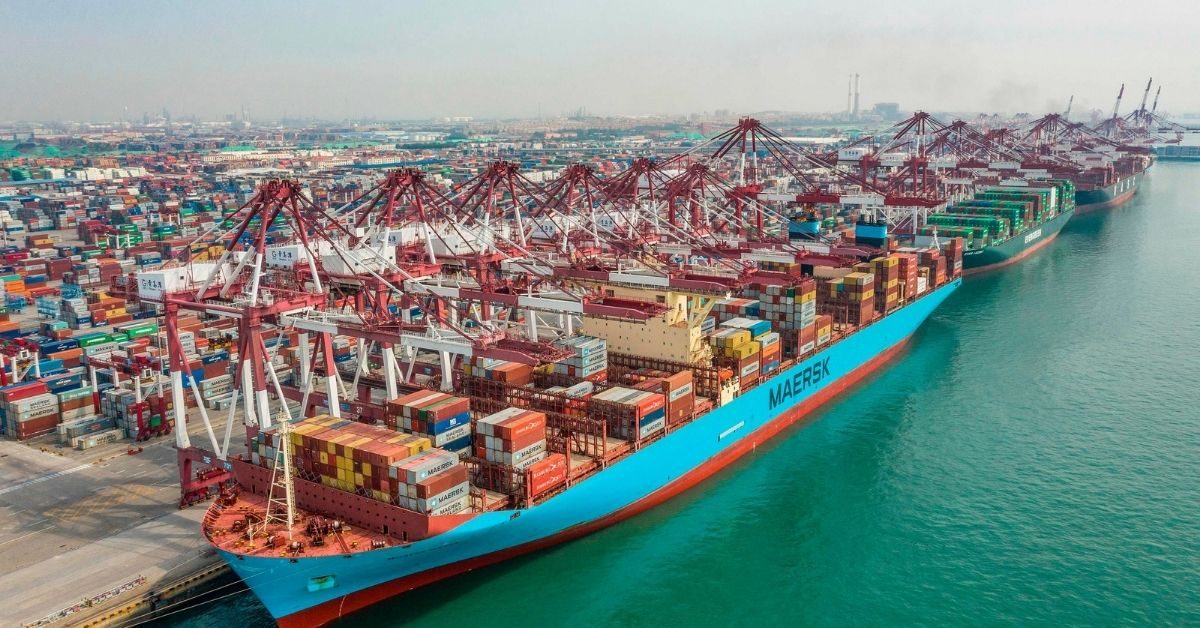Source: ET Infra
DP World Ltd-run international container transhipment terminal (ICTT) at Vallarpadam in Cochin Port handled 7.54 lakh twenty-foot equivalent units (TEUs) in FY24, the most since it started operations thirteen years ago, posting an 8.49 percent growth over the previous year.
But the facility’s transhipment volumes – the main objective for building the terminal – was 1,05,405 TEUs in FY24, marginally higher than the previous year’s level of 1,04,666 TEUs, and accounting for some 14 percent of the total volumes handled. In FY23, the share of transhipment volumes was some 15 percent of the total volumes.
The 1.2 million TEU-capacity facility is India’s first international container transhipment terminal designed to cut the country’s dependence on neighbouring Colombo Port to send and receive container cargo, thereby saving time and extra costs for India’s exporters and importers.
However, the Vallarpadam ICTT has not been able to garner any meaningful transhipment volumes since its February 2011 start to dent Colombo’s stature in this business.
Annually, around 3 million TEUs of India-bound cargo containers are transhipped at Colombo, Singapore, Port Klang, Salalah and Dubai, according to government estimates. Colombo, Singapore, and Port Klang handle more than 85 percent of this with Colombo alone handling about 2.5 million TEUs.
The transhipment volumes handled by the DP World facility was a paltry 5 percent of the total volumes till FY20.
In FY21, it rose to 13 percent and in FY22 it hit 21.23 percent before declining to 15 percent in FY23.
Shipping industry says that instead of functioning as a container transhipment terminal, the Vallarpadam ICTT has become more of a gateway terminal through which containers are shipped directly to destinations.
A container transshipment terminal acts like a hub, into which smaller feeder vessels bring cargo containers which then gets loaded onto larger ships for transportation to final destinations. Larger vessels bring about economies of scale, and lower the cost of operations for shipping lines, which then translates into lower freight rates for exporters and importers.
The Union government and Cochin Port Authority invested more than Rs2,000 crore on the project to provide basic infrastructure such as four-lane road, rail link and dredged the channel to 15.95 metres to accommodate 14.5-metre draft ships.
Cochin Port Authority spends close to Rs90 crore every year from internal resources just to maintain the current depth of the channel.
Lack of deep draft and high vessel related charges have been cited for ICTT’s inability to achieve the objective for which it was designed.
To overcome these hurdles, the port authority also granted 86 per cent concession in Vessel Related Charges (VRC) to help the ICTT compete with Colombo Port.
Besides, in 2018, the Ministry of Ports, Shipping, and Waterways allowed foreign flagged ships to carry export-import (EXIM) laden containers meant for transhipment and empty containers meant for re-positioning on domestic routes, without a license from the Directorate General of Shipping.
Only Indian registered ships are allowed to ply on local routes for carrying cargo, according to India’s so-called cabotage law. Foreign ships can operate along the coast only when Indian ships are not available after taking a license from the DG Shipping, according to the decades-old law designed to protect domestic ship owners.
The cabotage rules were eased to improve the fortunes of the Vallarpadam ICTT. DP World recently installed six new cranes, including two ship-to-shore mega max cranes at the ICTT, to boost efficiency and productivity.







